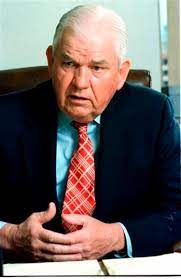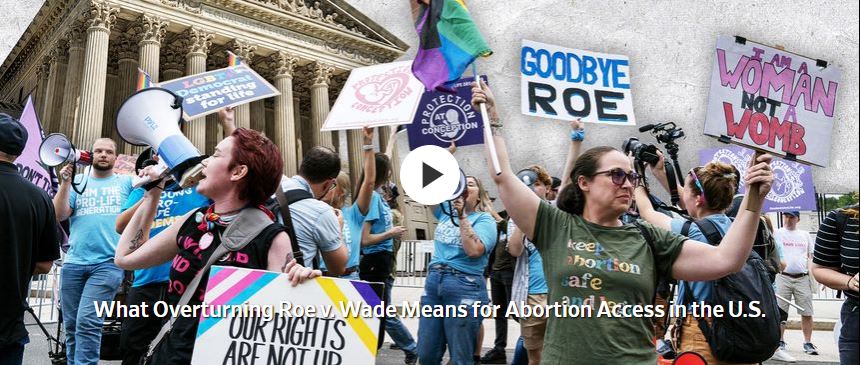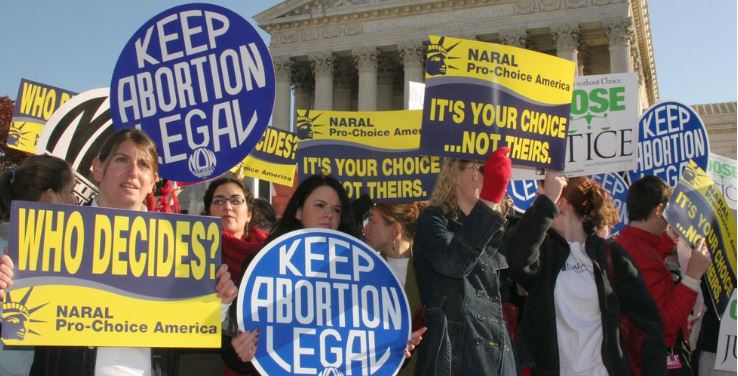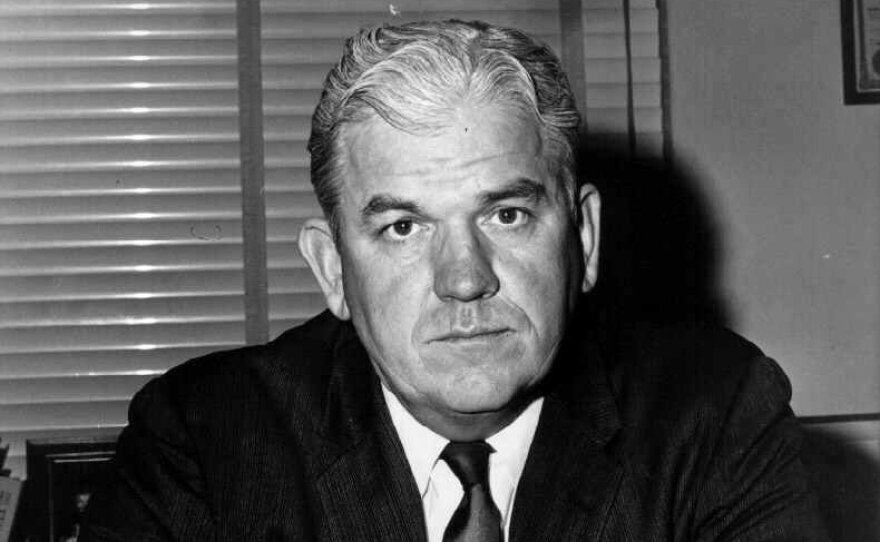Henry Wade was an American lawyer who served as district attorney of Dallas County. He is famous for the popular “Roe v. Wade” landmark Supreme Court case? Here’s a history, summary, and background about him.
The Supreme Court on Friday upheld abortion restrictions in Mississippi and eliminated the constitutional right to an abortion that was first established in the 1973 Roe v. Wade decision.
The US Supreme Court has opened the door for individual states to ban or severely restrict the ability of pregnant women to get abortions.
In 1973, the court had ruled in Roe v Wade that pregnant people were entitled to an abortion during the first three months of their pregnancy while allowing for legal restrictions and bans in the second and third trimesters.
Now the court has overturned that earlier ruling, effectively making it possible for states to ban abortions earlier than 12 weeks.
Abortion will not automatically become illegal in the US – but individual states will now be allowed to decide if and how to allow abortions.
In this article, TheVibely will share with you the man behind the popular landmark “Roe v.Wade”, his story, who he was, and what happened to him.

Who Was Norma McCorvey?
Jane Roe was known in real life as Norma Lean McCorvey (born September 22, 1947), a Dallas waitress who died on February 18, 2017. She was married to Woody McCorvey from 1963 to 1965 and was blessed with a child named Shelley Lynn Thornton. Her parents were Mary Sandefur Nelson and Olin Nelson.
In 1969, Norma McCorvey, a Texas woman in her early 20s, sought to terminate an unwanted pregnancy. McCorvey, who had grown up in difficult, impoverished circumstances, previously had given birth twice and given up both children for adoption. At the time of McCorvey’s pregnancy in 1969 abortion was legal in Texas—but only for the purpose of saving a woman’s life.
While American women with the financial means could obtain abortions by traveling to other countries where the procedure was safe and legal or paying a large fee to a U.S. doctor willing to secretly perform an abortion, those options were out of reach to McCorvey and many other women.
As a result, some women resorted to illegal, dangerous, “back-alley” abortions or self-induced abortions. In the 1950s and 1960s, the estimated number of illegal abortions in the United States ranged from 200,000 to 1.2 million per year, according to the Guttmacher Institute.
After trying unsuccessfully to get an illegal abortion, McCorvey was referred to Texas attorneys Linda Coffee and Sarah Weddington, who were interested in challenging anti-abortion laws.
In court documents, McCorvey became known as “Jane Roe.”

Who Is Henry Wade?
Henry Wade known in real life as Henry Menasco Wade was an American lawyer who served as district attorney of Dallas County from 1951 to 1987.
He was born on November 11, 1914, in Rockwall County, Texas, United States. He died on March 1, 2001, in Dallas, Texas, United States.
Wade had 10 siblings and was among five of his seven brothers who entered the legal profession. After graduating from the University of Texas at Austin, Wade joined the Federal Bureau of Investigation headed by J. Edgar Hoover in 1939.
He was married to Yvonne Hillman from 1948 to 1987. Wade had more children, some of his kids’ names are Kim Wade, Wendy Wade Ballew, Henry M. Junior Wade, Michelle Wade Branderburger Wade, and more.
In 1970, the attorneys filed a lawsuit on behalf of McCorvey and all the other women “who were or might become pregnant and want to consider all options,” against Henry Wade, the district attorney of Dallas County, where McCorvey lived.
Earlier, in 1964, Wade was in the national spotlight when he prosecuted Jack Ruby, who killed Lee Harvey Oswald, the alleged assassin of President John F. Kennedy.

What is Roe v. Wade and why does it matter?
Roe v. Wade is a landmark Supreme Court case from 1973 that determined that the U.S. Constitution protects a woman’s right to an abortion before her fetus is viable, per Cornell Law School.
The case started with a woman named Norma McCorvey, who took on the legal pseudonym “Jane Roe.” McCorvey became pregnant in 1969 with her third child and wanted an abortion. But she lived in Texas, where abortions were illegal except in rare circumstances.
The court ultimately decided that during the first trimester, the decision to terminate a pregnancy was a woman’s choice on the basis that it constituted a woman’s “right to privacy.” And as such, it was unconstitutional to ban women’s access to abortion in individual states.
With this decision from the Supreme Court, states could still “regulate,” but not outlaw abortions in the interest of the mother’s health. Beyond the first trimester, the court ruled that states could regulate or outlaw abortions except when necessary to preserve the life or health of the mother.
With Roe v. Wade overturned, the Supreme Court now puts the decision back into the states’ hands. More on that in a second.

Why was Roe v. Wade overturned?
The Roe decision has been repeatedly challenged for nearly a half-century, but the current conservative makeup of the Supreme Court made it more likely that the case would actually be overturned this year.
Last year, the Supreme Court agreed to hear a challenge to Mississippi’s 15-week abortion ban with the Dobbs case, which also required the court to re-analyze the decision in Roe v. Wade, CNN explains. This decision ultimately affects the legality of abortion in the U.S. and now leaves it up to states to decide if and when abortions are legal within state boundaries.
“The challenge to Mississippi’s law gave the Court an opportunity to reverse Roe,” says Mary Ziegler, a professor of law at Florida State University, and author of Abortion and the Law in America: Roe v. Wade to the Present. “There would be any number of other options to reverse Roe. This was just the one that came to the Court the most quickly.”
At the same time, some states have put policies in place that increases abortion access for constituents, while others have made things more restrictive.
Overall, 26 states, or more than half of the country, have laws that could restrict access to abortion now that Roe is overturned. And just 16 plus the District of Columbia have laws in place to protect that right, despite Roe being overturned.
Earlier in May, Ziegler explained that she, “would expect about half of the states to criminalize all abortions. That will happen very quickly—in a matter of weeks or months.







